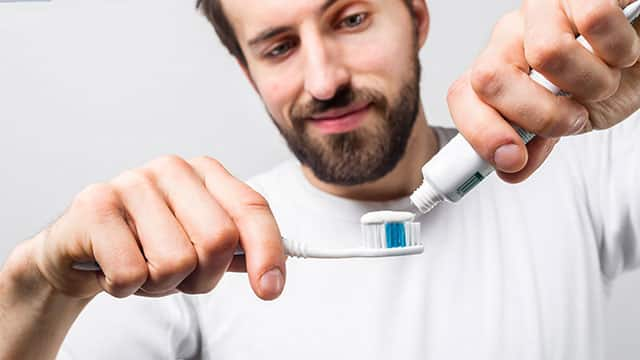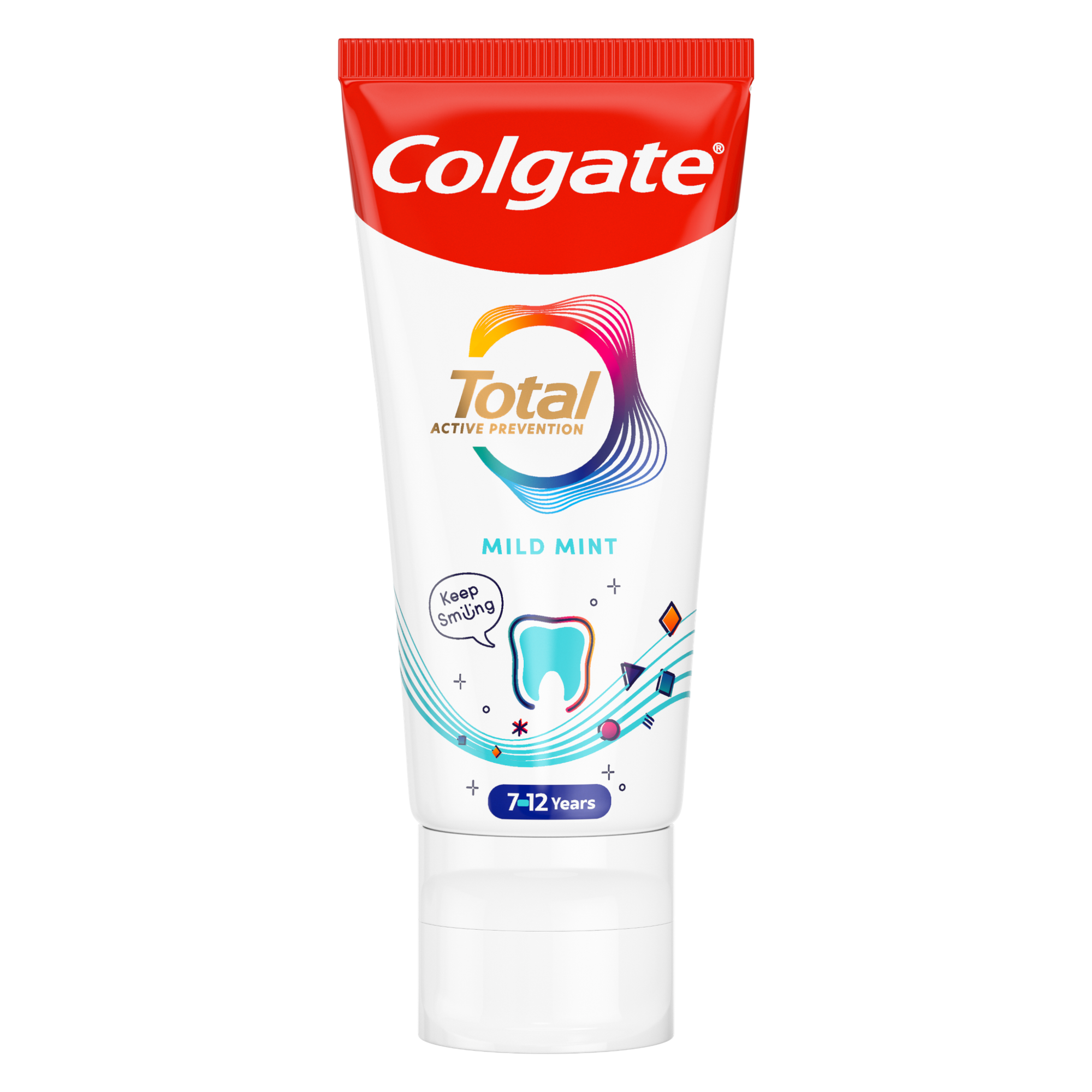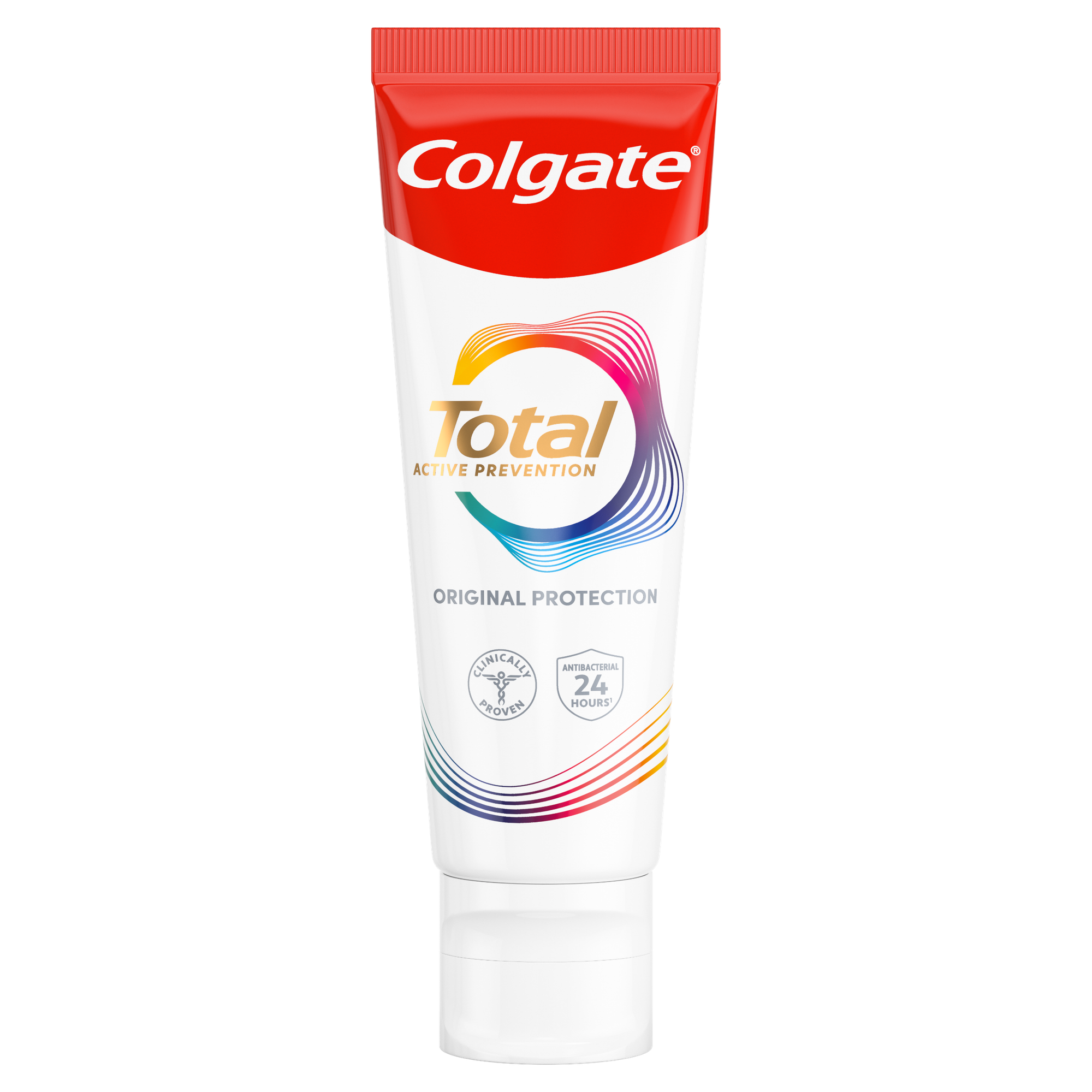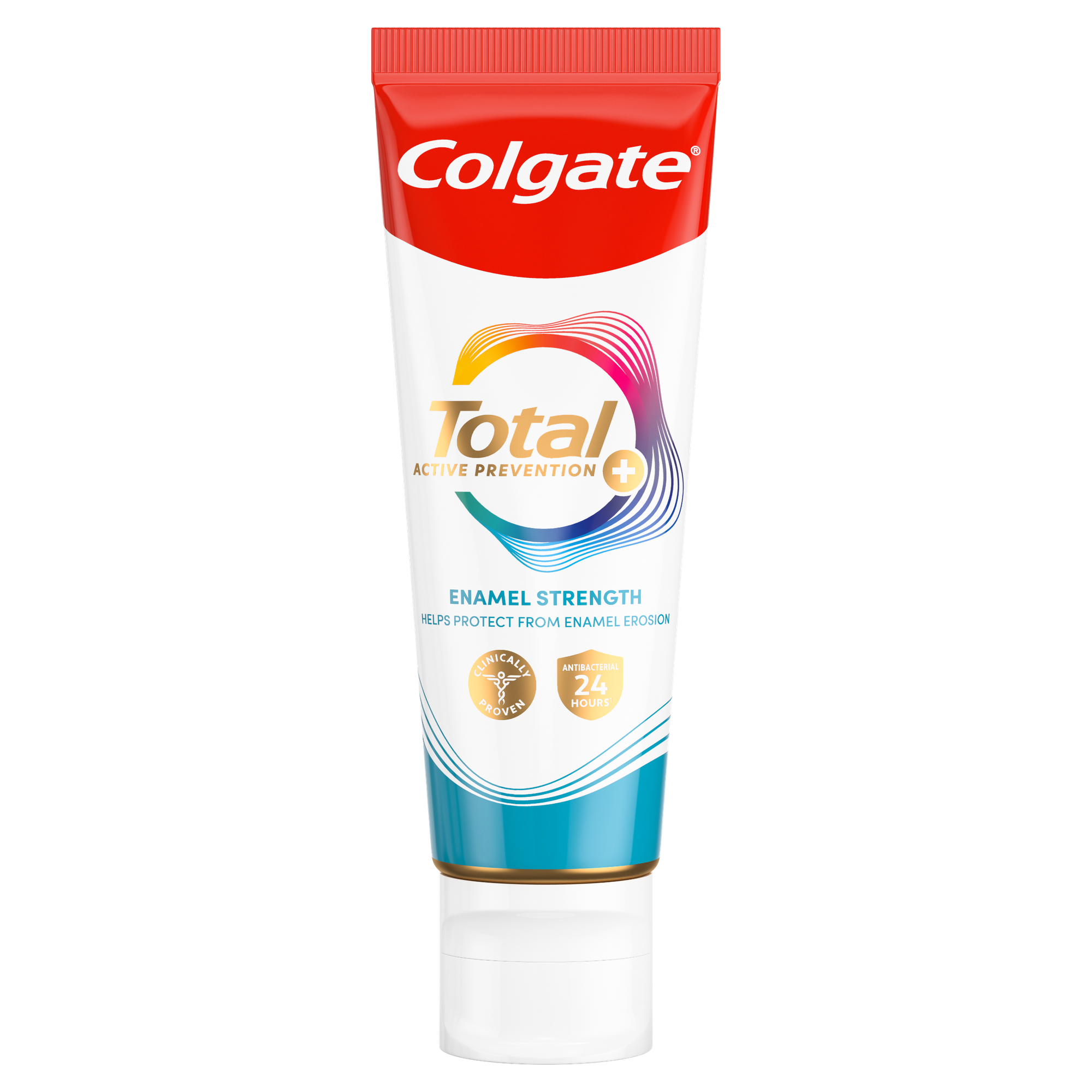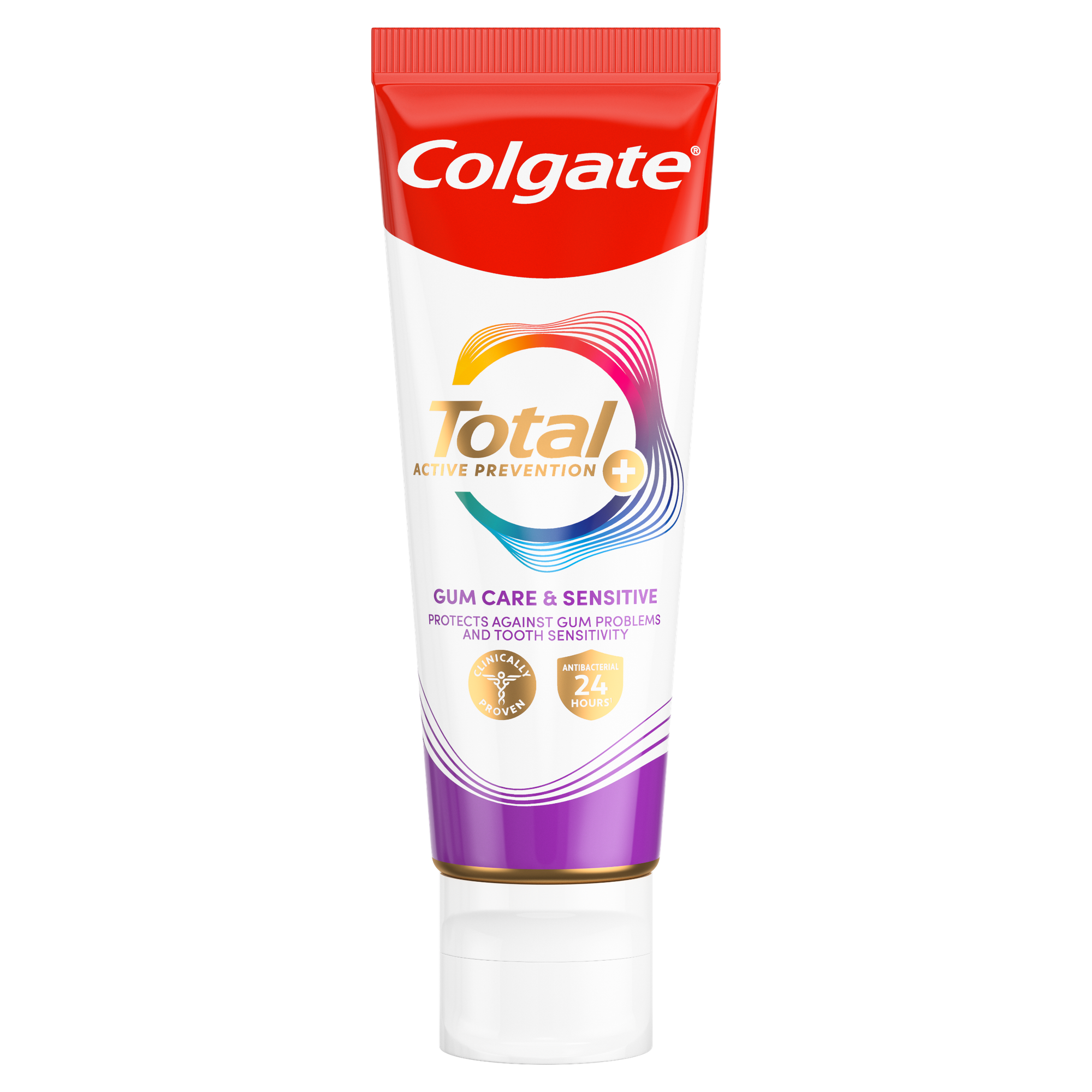Your dental professional can help you learn good oral hygiene techniques and can point out areas of your mouth that may require extra attention during brushing and flossing. Read on to find out more about good oral hygiene, oral care tips and how to look after your teeth.
How Is Good Oral Hygiene Practiced?
Maintaining good oral hygiene is one of the most important things you can do for your teeth and gums. Not only do healthy teeth and healthy gums enable you to look and feel good, but they also make it possible to eat and speak properly. Good oral health is important to your overall well-being.
Daily preventive care, including proper brushing and using dental floss, will help stop problems before they develop and is much less painful, expensive, and worrisome than treating conditions that have been allowed to progress.
In between regular visits to the dentist, there are simple steps that each of us can take to greatly decrease the risk of developing tooth decay, gum disease, dry mouth and other dental problems. These include:
- Brushing thoroughly twice a day and using dental floss daily
- Eating a balanced diet and limiting snacks between meals
- Using dental products that contain fluoride, including fluoride toothpaste
- Rinsing with a fluoride mouth rinse if your dentist tells you to
- Making sure that children under 12 drink fluoridated water or take a fluoride supplement if they live in a non-fluoridated area.
Steps to Prevent the Risk of Developing Tooth Decay and Gum Disease
Below, you’ll find some helpful steps on how to look after your teeth, including proper brushing and flossing techniques. Add these steps to your routine to ensure you’re cleaning both the surfaces and in between your teeth effectively. Using these simple techniques can help prevent the risk of developing tooth decay and gum disease.
| Proper Brushing Technique | ||
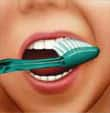 | 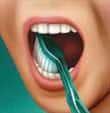 | 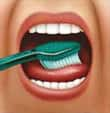 |
Tilt the brush at a 45° angle against the gumline and sweep or roll the brush away from the gumline. | Gently brush the outside, inside and chewing surface of each tooth using short back-and-forth strokes. | Gently brush your tongue to remove bacteria and freshen breath. |
| Proper Flossing Technique | ||
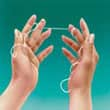 | 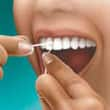 | 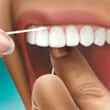 |
Use about 18" of floss, leaving an inch or two to work with. | Gently follow the curves of your teeth. | Be sure to clean beneath the gumline, but avoid snapping the floss on the gums. |
Importance of Daily Oral Hygiene
We all know how important daily oral hygiene is; the Penn School of Medicine at the University of Pennsylvania summed up the reasons why it’s so important into 4 key points:
- You may live longer if you keep all of your teeth –studies show that people who still have all or most of their natural teeth at age 70 live longer than those who have 20 or less.
- You may be more likely to avoid diseases – oral health problems can increase the risk of problems in other parts of your body, including heart disease, respiratory infections and pneumonia.
- Good oral health can prevent complications from other conditions – for example, diabetics are more susceptible to infections like gum disease. If you look after your oral health, you should avoid this complication.
- Dental hygiene has a psychological impact – missing or damaged teeth can make you feel more self-conscious and affect your confidence. This can impact other areas of your life, like work and relationships.
Dental Hygiene Helpful Tips
The good thing is, it’s never too late to improve your oral hygiene routine! Here are some simple steps you can follow to enjoy healthy gums and teeth:
- Brush your teeth at least twice a day using a soft-bristled toothbrush and fluoride toothpaste.
- Use dental floss or interdental brushes daily to clean the hard-to-reach areas between your teeth.
- Use mouthwash to remove any leftover food particles – this will also keep your breath fresh!
- Limit the amount of sugary or acidic food and drinks you eat – try to eat a healthy diet with lots of fresh foods.
- Replace your toothbrush every three months or sooner if the bristles are frayed or worn.
- Visit your dentist regularly for check-ups and dental hygiene appointments for cleaning.
- Avoid tobacco products if possible.
Dietary Tips for Good Oral Hygiene
What you eat can really affect your oral health, especially if you don’t have a good oral care routine to clean your teeth and gums. If healthy gums and teeth are what you’re after, here are some tips relating to what you eat and drink, including dos and don’ts that can help minimise your chances of developing oral problems like tooth decay:
Do
- Eat a diet full of fresh fruits, vegetables and whole foods – eating raw veggies like carrots or celery can actually help to clean your teeth.
- Brush your teeth or chew sugar-free gum around 30 minutes after eating to remove food particles and freshen your breath.
- Scrape your tongue after eating to remove bacteria that lingers on the surface.
- Drink water throughout the day to keep your mouth clean, rinse away bacteria and reduce the risk of dry mouth.
Don’t
- Eat a diet high in sugary or acidic foods - avoid sweets, chocolate, fizzy drinks and alcohol as much as possible.
- Eat highly pigmented foods often as they will stain the surface of your teeth - this includes things like tea, coffee, fruit juices, red wine, cola, curry and berries.
- Smoke or use other tobacco products.
Use these oral care steps every day and enjoy clean teeth and healthy gums for years to come!
This article is intended to promote understanding of and knowledge about general oral health topics. It is not intended to be a substitute for professional advice, diagnosis or treatment. Always seek the advice of your dentist or other qualified healthcare provider with any questions you may have regarding a medical condition or treatment.
ORAL HEALTH QUIZ
What's behind your smile?
Take our Oral Health assessment to get the most from your oral care routine
ORAL HEALTH QUIZ
What's behind your smile?
Take our Oral Health assessment to get the most from your oral care routine








